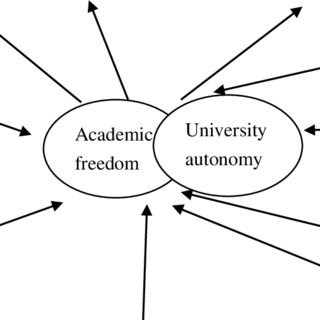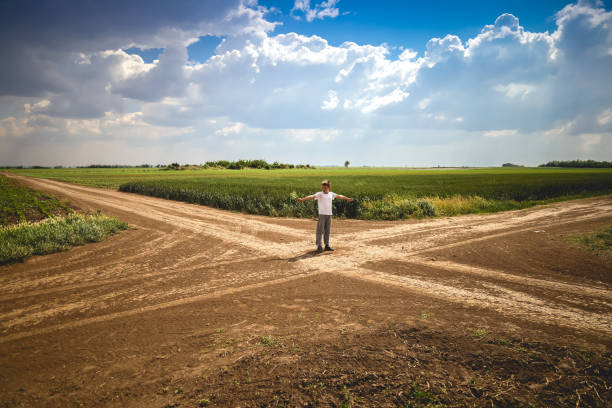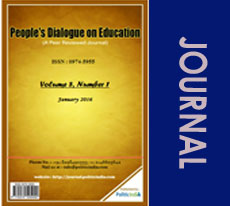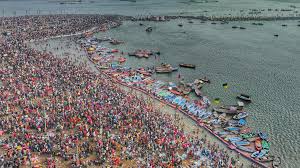Making (Non)Sense Out of NRC and CAA
- Post By PoliticIndia.com on
- 28/Dec/2019

KHAGENDRA KUMAR
To understand the aftermath of the National Register of Citizens (NRC), it would be quite relevant to revisit the issue of rehabilitation and resettlement of tribes and villagers displaced by the mega Sardar Sarovar Project (SSP) of Narmada basin. several thousand people living in the Narmada basin could not get compensation as they were not having land-patta (land document) of their dwellings. In order to signal the completion of SSP, the Narmada reservoir level was allowed to raise its full level of 138.68 m in spite of falling the houses and agricultural fields of several thousand families in the submergence zone. Nearly 40 thousand families are still living in the submergence zone because of the lack of rehabilitation and resettlement. It can be concluded that thousands of poor tribes and downtrodden living in the Narmada basin could not get compensation and are still to be settled and rehabilitated as they had no paper (land patta) to prove their claim of habitation and agricultural land in their possession. A similar situation can be predicted once NRC is implemented. While the country is facing nationwide protests on Citizenship Amendment Act ( CAA), contradictory statements and explanations of the Prime Minister and the Home Minister about NCR on different occasions & from different platforms have added to the confusion of the people protesting against CAA. The Prime Minister said in his recent speech in an election rally in Ramlila Maidan, New Delhi "I want to tell the 130 crore people of India that ever since my government came to power in 2014, from then until now, there has been no discussion on NRC anywhere. We only had to implement it in Assam to follow Supreme Court directives." Addressing a public rally in West Singhbhum in Jharkhand ahead of the Assembly elections, Home Minister Amit Shah said that the government would expel all the infiltrators before the next Lok Sabha polls, scheduled in 2024. Amit Shah said in his address to the Rajya Sabha, "NRC has no such provision which says that certain religions will be excluded from it. All citizens of India irrespective of religion will figure in the NRC list." He also assured that all citizens of India irrespective of religion will figure in the National Register of Citizens (NRC) list and that NRC is different from the Citizenship Amendment Bill.
Citizenship of a person is decided on the basis of The Citizenship Rules, 2009. These rules are based on the Citizenship Act, 1955. These are five ways for a person to get the citizenship of India: I. Citizenship by Birth, II. Citizenship by descent, III. Citizenship by registration, IV. Citizenship by naturalization and V. Citizenship by incorporation. The government has released 13 FAQs on NRC as there has been widespread agitation on the issue of NRC and several apprehensions in the minds of the people. After going through the Citizenship rules and FAQs, it is evident that some sort of document/s would be needed for enrolling oneself into the NRC. At the same time, the mere production of a/few documents can not prove a person an Indian citizen beyond doubt. A good number of foreigners have possessed such documents by fraudulent means. The more disturbing issue is that a large number of Indian citizens may not prove their citizenship as they may not be in possession of the document/s required to prove their citizenship.
It is a point of genuine apprehension for millions of Indian citizens who might have to face difficulties in proving their citizenship. In a country like ours where babus' working style is not generally known to be friendly and of helping nature, a large number of common people are bound to face difficulties and embarrassing situations in getting enrolled in NRC. Moreover, corruption may be another problem in maintaining NRC. A situation similar to the tribes and downtrodden of the Narmada basin who were displaced as a result of the construction of Sardar Sarovar Dam will arise. As the displaced tribes of Narmada basin failed to get even compensation for rehabilitation as they had no land patta of their dwellings in spite of the fact that they were original inhabitants of the Narmada basin; similarly a large proportion of genuine citizens may not get enrolled in the National Register of Citizens and face the consequences decided for the purpose.
In a situation discussed above, the government must remove the air of confusion created by the Prime Minister and the Home Minister on different occasions. The government should clarify its stand on NRC and the apprehensions of the people about the documents required for NRC. In case of non-availability of documents or availability of fake documents, what measures will be taken by the government to make decisions regarding the citizenship? In a vast country like India, it may be possible that a few million people may not be enrolled in the NRC. How the state will deal with such people who are not proved to be Indian citizens. There is nothing wrong in settling issue of citizenship of a country, rather it is a very important issue but there is no reason to revisit the citizenship of a person who has been living in India for years, exercising their franchise, availing public and private facilities at par with fellow citizens, and above all he/she considered himself/herself Indian.
The Citizenship Act 1955 was amended by inserting the following provision-
"Provided that any person belonging to Hindu, Sikh, Buddhist, Jain, Parsi or Christian community from Afghanistan, Bangladesh or Pakistan, who entered into India on or before the 31st day of December 2014 and who has been exempted by the Central Government by or under clause (c) of sub-section (2) of section 3 of the Passport (Entry into India) Act, 1920 or from the application of the provisions of the Foreigners Act, 1946 or any rule or order made thereunder, shall not be treated as illegal migrant for the purposes of this Act;". The new amended Citizenship Act 2019, popularly known as CAA was notified in the Gazette of India on 12 December 2019. The CAA is being widely protested across the country since the inception of the Citizenship Amendment Bill (CAB) in the parliament. An intense debate was also carried out in both the houses of the parliament. Huge protests against CAA appear to be based on India being a secular state and Right to equality under Article 14 of the Indian Constitution.India has been conceived as a secular since its inception as an independent state. In fact, it was the very basis of its formation. Secularism in India means equal treatment of all religions by the state. With the 42nd Amendment of the Constitution of India enacted in 1976, the Preamble to the Constitution asserted that India is a secular nation. However, neither India's constitution nor its laws define the relationship between religion and state. But the meaning of secularism is amply clear in the mindset of the country. India is widely respected across the globe as a secular state. The people of all religions enjoy the Right to equality given under article 14 of Indian law. it is one of the fundamental rights. It ensures every person the right to equality before law & equal protection of the laws. It is not only right of Indian citizens but also right of non-citizens. Article 14 defines, no one is above the law. All are equal in the eyes of law.In the case of Indra Sawhney, the right to equality is also recognized as one of the basic features of the Indian constitution. Article 14 applies to all persons and is not limited to citizens. In the case of Ramesh Prasad v. the State of Bihar, AIR 1978 SC 327, it is to be noted that the aim of both the concept, ' Equality before law' and ' equal protection of the law' is the equal Justice. On the basis of the above fact, firstly it appears to be illogical to discriminate against a refugee living on Indian soil on the basis of religion and nationality. The ruling government is trying to convince that Pakistan, Afghanistan, and Bangladesh are Muslim (Islamic) countries hence there is no logic to grant them Indian citizenship as they must be comfortable in their own countries of which they are citizens. The conclusion drawn by the ruling government is that the religion of a person is the only reason to leave his/her country and migrate in India as a refugee is very simplistic and does not bear the truth. The history is replete with examples where people were forced to leave their countries for various reasons or various kinds of excesses and became refugees in other countries. Secondly, it is further discriminatory to isolate Muslims from three neighboring countries only. How the ruling government will decide the citizenship of a Muslim refugee from a secular state or a religious state other than Islamic? If India is not in a position to afford the socioeconomic and political load of refugees, the government should come out with a rational parameter to deny the citizenship status of a refugee. Neither a problem regarding refugees is an indigenous problem nor the solution is indigenous. The basic humanitarian question is to either provide honorable space to a refugee to live in India or send him/her back to the country from where he/she has migrated. The sending back also involves a question of peaceful and honorable resettlement in his/her own country from where he/she migrated under duress. This requires great diplomatic effort and support of the international community. The current CAA will not be able to solve the problems of refugees in India as the Act is based on the narrow perception that religion is the basic force behind the victimization of a person. It may be true that Hindus in Pakistan, Bangladesh, and Afghanistan are not treated at par with Muslims in India. This may be one of the most plausible reasons for the migration of Hindus from these Muslim countries to India. It is appreciable to think about their victimization and try to get them an honorable space to live in India. But it is equally important to think about the agonizing conditions of the people other than Hindus who left their countries and migrated to India. It is just not right to isolate Muslims in CAA whereas all other religions are included. Once again I would like to highlight that religion is not the only basis of victimization of a person. Finally, it is important to emphasize that nobody wishes to be a refugee. The person's own actions or actions of others may be the reason for the problem which led him/her to be a refugee. But once a refugee, it is the duty of a modern state like us to get him/her space to live honorably either in his/her own country from where he/she has migrated or in the country he/she is a refugee. The problem of refugees is a problem between two or among several nations. In either situation, the state which takes lead in restoring human value has to strive hard and play a pivotal role in solving an interstate multidimensional problem. Let people make aware of the fact & build a universal conscience towards secularism & equality of Rights. Let secularism & equality prevail in all countries across the globe.





